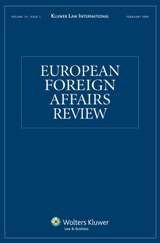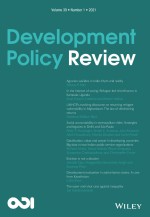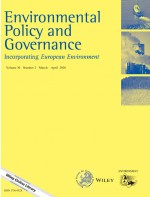Addressing Legitimacy in the EU’s Interregional Approach to Climate Change: The Case of the Parliamentary Assembly of the Union for the Mediterranean

The 2015 Paris Agreement adopted at the twenty-first Conference of the Parties (COP) of the United Nations Framework Convention on Climate Change (UNFCCC) constitutes a major landmark in the combat against climate change. However, international climate governance and the climate deal have been confronted with concerns about their legitimacy and accountability. In the same vein, while the combat against climate change also takes centre stage in the EU’s inter-regional relations, the EU’s approach has suffered from democratic deficits as well. Literature on parliamentary diplomacy and interregionalism has pointed at the potential of inter-parliamentary assemblies’ monitoring and deliberation functions in addressing the legitimacy gap of intergovernmental agreements. This article puts the focus on the Parliamentary Assembly of the Union for the Mediterranean and climate change, and analyses to what extent and how the Assembly fulfils these monitoring and deliberation functions. In doing so, the article aims to examine how inter-parliamentary assemblies can contribute to the legitimacy of the EU’s inter-regional approach to climate change. The analysis is based on quantitative and qualitative text analysis, in-depth semi-structured interviews and participatory observation. The conclusion reads that, while the Parliamentary Assembly of the UfM (PA-UfM) has indeed used its monitoring and deliberative functions, there are several limitations related to the asymmetry between the EU and its Southern and Eastern Mediterranean partner countries, that hamper its potential contribution to add legitimacy to the Union for the Mediterranean’s (UfM) climate action.








